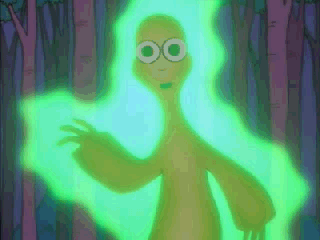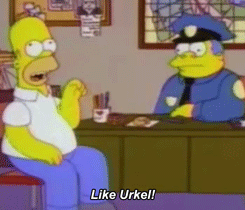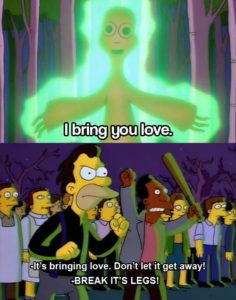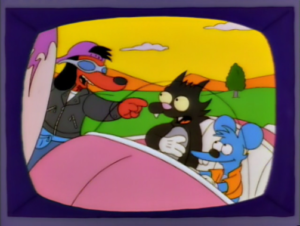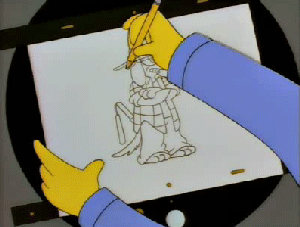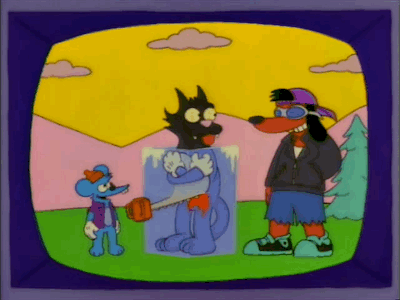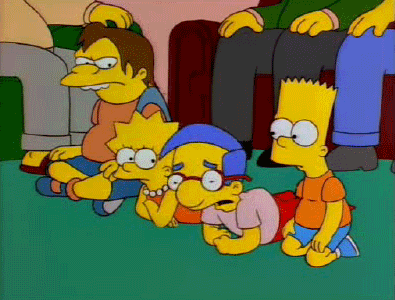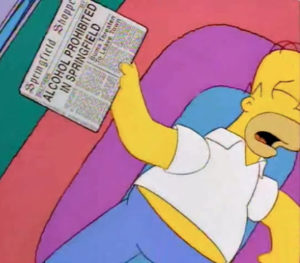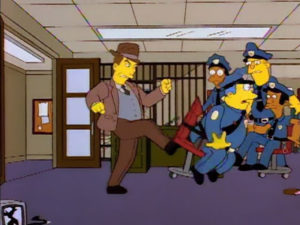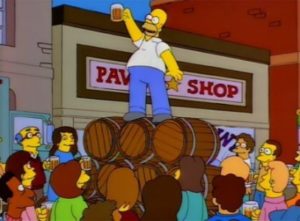(Make sure you read part one) It’s been over twenty years since I can remember the first time I saw Matt Groening’s “crudely drawn” family of five deal with the almost surreal problems that life seemingly presents on a daily basis. From that moment I laid my eyes on “The Simpsons” I became enamored and, eventually, a life-long fan (more than likely I’ll be re-watching episodes when I’m old enough to shout at clouds). During my time as a “Simpsons” viewer I’ve discovered many relatable life lessons that I plan to share with you. Welcome to “The Simpsons Life Lesson” series (season eight – part two).
The Truth is Out There (Episode 10: “The Springfield Files”)
In another showcase as to why you shouldn’t drink excessively late at night (or at all depending on who you are), Homer Simpson celebrated another Friday morning by skipping work to visit local pub, “Moe’s”, and intake enough beer to actually convince the sadistic tavern owner to give his loyal patron a breathalyzer. The result was most troubling and forced Homer not to drive. But Homer’s walk home wasn’t as easy as it could’ve and should’ve been (especially when prior and future episodes show “Moe’s” is right down the street from the Simpson’s home). Losing track of his surroundings saw Homer coming face to face with a glowing creature in the woods proclaiming to the scared individual, “Don’t be afraid.” Of course Homer was afraid and ran for his life. Everyone and their mother mocked Homer for his potential encounter until the point FBI agents Fox Mulder and Dana Scully (yes, there was a “X-Files” cross-over episode) visited Springfield to find out who was telling this tale about this alien with a sweet, heavenly voice who appeared every Friday night…
When it seemed all was lost for Homer in his search for other intelligence in the universe, Bart joined his father in capturing footage of this woodland alien. With the video being given to the news media, all of Springfield gathered on a random Friday night at the site of this alien appearance to discover Homer was right after all. In front of everyone stood a glowing creature promising to bring peace and love – to which the people of Springfield responded by threatening to kill the alien. Thankfully a murder was stopped by Waylon Smithers (and Lisa Simpson’s flashlight) who unveiled that the “monster” was actually Mr. Burns following his weekly “longevity treatment” that allowed him to “cheat death” and left him “twisted and disoriented” while emitting a green glow due to years of being exposed to radiation.
Though there actually wasn’t an alien, the fact remains that the truth is out there. For Springfield, the truth was Mr. Burns could actually bring peace and love when drugged up. For others, it could be anything from an elderly man trying to regain his teeth from a turtle to a local bar owner returning a killer whale to Sea World.
If it Ain’t Broke, Don’t Fix it (Episode 14: “The Itchy & Scratchy & Poochie Show”)
Once beloved, “The Itchy & Scratchy Show” animated program seen during “The Krusty the Klown” weekday afternoon series was falling by the wayside due to a lack of caring from the series’ core, adolescent audience – causing sagging television ratings. Gathering a bunch of children in an unidentified room, the minds behind the cat and mouse cartoon antics tried to figure out what could fix this stagnation problem. After being asked what the kids – Bart, Lisa, Milhouse Van Houten, Nelson Muntz and Ralph Wiggum – wanted in the show, Lisa eventually broke down the problem in the most simplistic manner possible by stating the characters no longer had the same impact as in the past. The end result was Roger Myers Jr. – son of “Itchy” and “Scratchy’s” creator – deciding to order a new character be implemented into the show. After many buzzwords to describe this potential addition, Poochie was born.
But Poochie couldn’t be “edgy”, “hip” or “get busy” without a voice that could capture the essence of a “rockin’ dog”. Homer, having been mocked by his kids for his “hilarious” voice, let his anger flow during the casting call and earned the job. Little did Homer know that his debut as an animated character in dog form would focus less on utilizing the style that made the cartoon famous in the first place and more on emphasizing Poochie’s “radical” nature including the talking dog being able to shoot basketballs while riding a bicycle, skateboard, play the guitar and rap. Viewers other than Ned Flanders hated the show (more than likely thanks to the lack of violence seen in other “Itchy & Scratchy” episodes). Heck, even Homer didn’t like the first showcase of Poochie. Eventually the producers saw the error of their ways and killed off Poochie even after Homer pleaded with them to give the character a second chance with a reboot showcasing the dog’s emotional side (well, after his suggestions for Poochie being louder and having access to a time machine didn’t go over well).
Just because a formula is stale, been overused and can produce something so repetitive that hardly anyone cares anymore, doesn’t mean it needs to be changed it if said formula is still working even on the most minimal of levels. If you try, the end result could be worse than what you started with in the first place. Leaving people physically and emotionally upset.
Prohibition Never Works (Episode 18: “Homer vs. the Eighteenth Amendment”)
St. Patrick’s Day was here again and the people of Springfield were enjoying the repercussions of allowing beer to literally flow into the streets – gang style fights, exploding buildings, streaking and a child getting drunk beyond comprehension. That child just so happened to be Bart Simpson and his inadvertent drunkenness (something caused by a spraying of beer into a crowd of open mouths) set into motion the reviving of prohibition in Springfield. It didn’t take long before the townspeople looking to “think of the children” and the future of Springfield discovered that Chief Wiggum refused to enforce the prohibition rule that was unknowingly on the books for the past 200 years. To replace Wiggum was a U.S. Treasury officer named Rex Banner. Bearing a striking resemblance to the prohibition officer from “The Untouchables”, Banner went on a crusade to find this elusive individual supplying Springfield illegal liquid, “The Beer Baron”.
Though this unidentified individual was working right under his nose, Banner struggled to pinpoint the source. Slinking into poverty, Chief Wiggum found himself desperate to resurrect his career by fingering anyone possibly involved in any illegal activity. On one random night, Wiggum pointed his trigger-less gun (he sold the trigger and most of the handle to feed his family) at Homer Simpson. Unbeknownst to the exiled police officer, Homer was actually “The Beer Baron”. Homer took it upon himself to help his daughter’s ex-boyfriend’s father, accidentally putting himself in position to be catapulted out of Springfield as per the punishment made when the anti-liquor law was created. After Banner’s speech about obeying all laws, it was discovered the Springfield repealed prohibition a year after its creation. Thanks to the mafia, beer found its way into the hands of every adult Springfielder after Banner was sent packing (or flying via the aforementioned catapult).
No matter the era, time or law-enforcing super cop, prohibition never works. Springfield learned its lesson pretty fast about banning alcohol – the cause of, and solution to, all of life’s problems.


